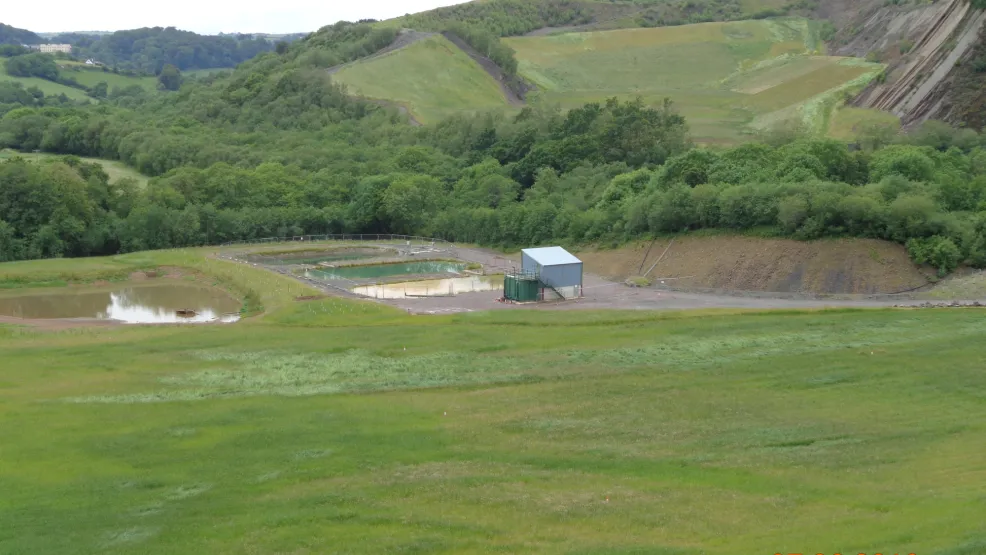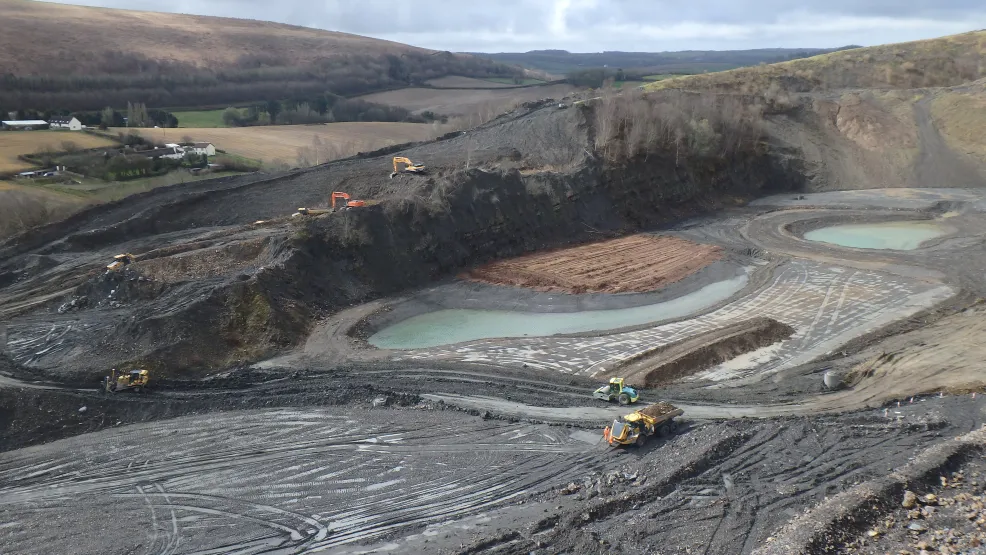VENN QUARRY RESTORATION
Aggregate Industries is committed to ensuring that we leave a positive legacy in the areas where we operate through the restoration of former extraction sites that benefit the local community, economy and environment. This is evidenced by the Venn Quarry Restoration project, where we worked closely with the local community, planning authority and developer to secure a financially viable end use for the quarry.
SITE HISTORY
Venn Quarry had been in operation since 1936, supplying high skid resistance aggregates for road surfaces across the South West from its’ two pits (Baileys and Spears). Located near Barnstaple, Devon, the site is a designated Area of Outstanding Natural Beauty, comprising 63 Sites of Special Scientific Interest and 670 County Wildlife Sites. It is contained within one of only seven sites awarded UNESCO Biosphere Reserve Status in the UK, Braunton Burrows. Quarrying activity ceased in 2006 and in 2012, development company, Habitat First Group, purchased the land as a development opportunity for a modern eco-holiday park/nature reserve (Birchwood Lakes).
PLANNING & COMPLIANCE
The quarry operated under a consent that included a range of planning conditions that governed our responsibilities for end-of-life restoration. Before development could take place, we undertook an 18-month consultation in 2015 with Habitat First Group, Devon County Council, North Devon Council, the Environment Agency and regional contractor MJ Church to plan the restoration/landscaping of the former 63-acre gritstone quarry and deliver our commitments under the Periodic Review of Minerals Planning Conditions (ROMP). Extensive ground investigations, ecological surveys and consultation with statutory bodies/planners highlighted how negative impacts associated with the restoration works could be minimised.
In September 2016, Devon County Council confirmed that they were satisfied with the restoration targets and granted the necessary planning permission. Restoration began in 2017 to make the site ready for its next life stage.
ENVIRONMENTAL/ECONOMIC BENEFITS
Our restoration measures were designed to complement local habitats and improve biodiversity and air quality in the area by planting over 5,000 trees, (generating an increase in woodland) together with 0.5 tonnes of grass seed. Buildings containing bat roosts were retained and remained in use during the restoration . The newly refurbished site also included public access links to the popular local Tarka Trail and its 180 miles of footpaths/cycle paths. Where practicable, we sourced inert landfill material locally to create the new landform.
Demolition of a local retail park three miles away from the quarry site provided 5000m3 of sub-base soil to be used as landfill. Safe rock outcrops were retained for landscape interest and geological study.
In consultation with the Environment Agency, we developed a water management system to preserve the water quality of the nearby River Venn. Water gathered from the quarry floor was pumped into a new on-site water treatment plant which discharges acidic water into three attenuation ponds for treatment. To prevent seepage/drainage into the river and underground watercourses, we also installed a clay cap over the quarry floor.
The project was completed in spring 2019, ready for construction of the new eco-tourism holiday park by HabItat First Group. The new development is expected to attract an additional £3.9m a year to the local economy from visitor spending and inward investment as well as providing future employment opportunities in the region.








